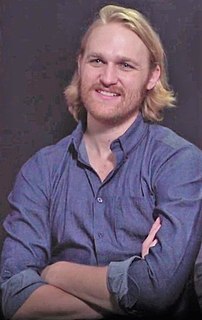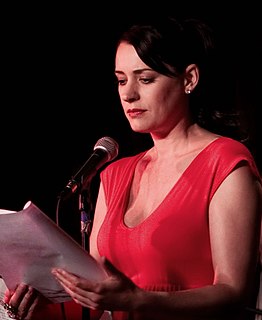A Quote by Noah Hawley
The great thing about making an ensemble show is it becomes modular. It might work on the page to cut from one scene to another, but on the screen, it's more powerful to take that second scene and move it first or move it later.
Related Quotes
It's like you might have some great scene that you love but for some reason - and you can't necessarily put your finger on it - the movie's not working or it seems slow or ponderous in some way, and even though it has your favorite scene in there, actually the favorite scene is the culprit. That's the painful thing about editing, is trying to locate those things that are holding the movie back and then having the guts to cut them. And it is painful to do it.
My editor and I remain very disciplined. It's just sometimes when you're making a film, you get into the cutting room and you see a scene that's slowing you down in a certain section, but if you remove that scene then, emotionally or story-wise, another scene a half-hour later won't have the same impact. You just get stuck with it.
I actually went to see 'Rushmore,' and I came late, and I missed myself. It was great, that scene. I caught that scene the other day on TV, funny enough, the first scene that you see with Jason Schwartzman and myself, where we talk about his grades. That's a brilliant scene, and I have to say, we play it brilliantly.
What I do is whatever it takes, it takes. Sometimes you see a scene right away and a take looks great so you might print that and you might print a couple more and take elements of all three. It just depends. You're looking for the highlights. You're looking for the best elements of the scene, but preferably you'd like to have one good take that would go all the way through.



































